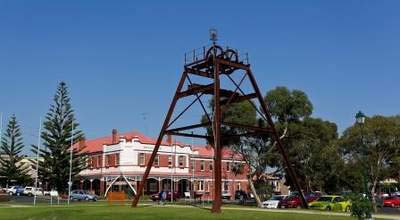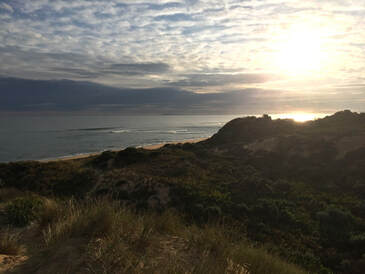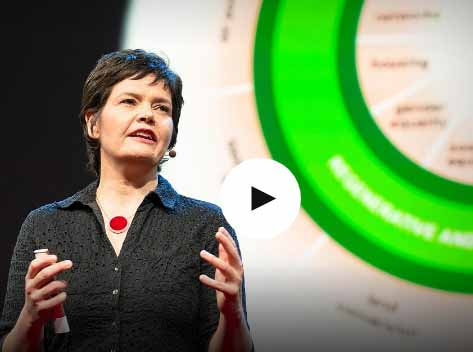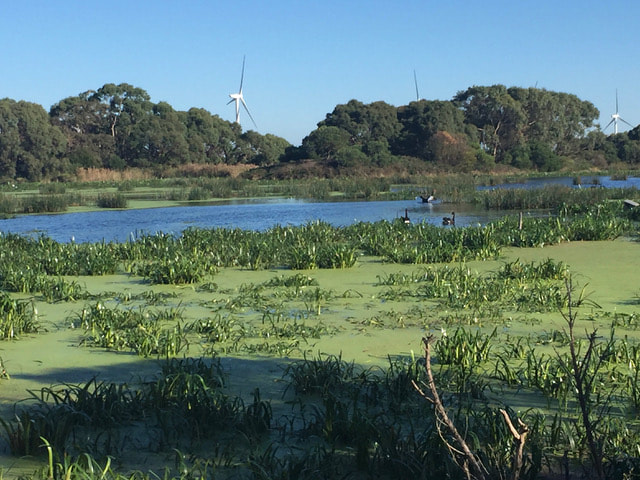 Photo: Catherine Watson
Photo: Catherine Watson LIKE many Bass Coast residents I floated out of Gill Heal’s Looking for Wonthaggi feeling uplifted and a little teary, still humming “There’s a part of my heart in Wonthaggi”. What a history our town has! Gill and her cast and crew did it proud. And what natural treasures we have in Bass Coast – treasures brought lovingly to stage and screen in another recent showcase of local talent, the Coastal Connections concert.
Yet underneath the euphoria, the delight of publicly sharing in this feast of theatre and film about our precious part of the world, I felt uneasy. Another song was running amok in my mind: Joni Mitchell’s Big Yellow Taxi, with its haunting warning: “Don’t it always seem to go / That you don’t know what you’ve got / Till it’s gone / They paved paradise / And put up a parking lot.” I couldn’t help wondering: do enough of us realise what we’ve got here?
 Photo: Morgan Blackthorne
Photo: Morgan Blackthorne Elsewhere, too, I’ve seen places I love diminished by greed and/or insensitive planning. I witnessed it when I lived near Gembrook, a tiny village set amid some truly stunning scenery. When I moved there many years ago, I loved going into the old corner store, where the proprietors always had time for a yarn, and perhaps a game of chess if you were up for it. There were no roadside postal deliveries, so you picked up your mail at the post office, which also provided banking facilities and a newsagency. With everyone picking up mail and newspapers, you were bound to meet someone you knew. The post office was a meeting place – so much so that when residents were asked if we wanted street deliveries of mail, we said no thanks. We knew we had something special.
Today I’m not so sure. Gembrook is still a beautiful place. Its population is still only about 2500 (compared with around 700 when I moved there), and I’m sure many residents feel a sense of community. (The tourist brochures suggest there is more café culture than there was a decade or so ago!) But bizarrely, Gembrook, like so many once-rural towns, is zoned as part of Melbourne. Not surprisingly, then, some residents feel – or accept – that Gembrook is no longer a village but a suburb.
I hope we don’t give away Wonthaggi’s identity, and that of our other Bass Coast towns. The March 2020 Bass Coast Distinctive Areas and Lands Discussion Paper highlights the “village feel” of the region’s settlements, although it assumes Wonthaggi will become a regional hub. Right now, though, Wonthaggi still feels like a community, a big village. We certainly notice the difference during holiday periods – the sudden crowds and lack of parking, and the frosty indifference in response to our habitual happy “hellos”.
As for Gembrook, it had two general stores back then, and I loved the slow pace of life they represented. Though I found it difficult to boycott for long the IGA supermarket that opened up. It was a difficult balancing act, as change always is. On the plus side, the IGA proprietor was unusually sensitive to the village atmosphere, quickly learning our names and what particular products we wanted him to stock. The down side was the inevitable demise of the general stores, and the butcher and green grocer.
Unfortunately, poor planning compounded this loss. The council had mandated in its permit permission that the supermarket and several new adjacent shops be set back from the road to allow off-street car parking directly in front of the new stores. That might have been a good idea for a larger town, but in Gembrook’s tiny “CBD” it created an ugly streetscape. Aside from the car park, the new brick shops were designed in a style at odds with the old timber buildings that still remained.
Wonthaggi has suffered the same fate. Take away a town’s distinctive visual coherence and identity and you start to erode the sense of pride in it. You can see it in Melbourne, too. Many of us who call Bass Coast home have lived in and loved our capital, but these days there are precious few remains of the Marvellous Melbourne of old, while its suburban sprawl seems to know little of taste and bounds.
| Our times offer some awesome opportunities to make dramatic positive changes. With the help of Regen Melbourne, the City of Melbourne is investigating downscaled (city-size) “doughnut economics”, the brainchild of economist Kate Raworth | The Victorian Government is aware of the problem, according to its planning website. They recognize that the COVID-19 pandemic has highlighted the need for urban green spaces, and they say they will increase protection of the city’s green wedges. Still, there are troubling signs. For us in the regions, these signs include the offloading of urban population problems to regional towns such as Wonthaggi, which has been described by bureaucrats as an “overflow” area for Melbourne. How insulting! We can grow well only if we have visionary – and sensitive – planners, artists and architects. And despite the best of political intent, not even Melbourne’s green wedges are safe: the Green Wedge Coalition, in its November 2020 Bulletin, expressed concern at the growing number of approvals for developments that do not meet GW guidelines. |
A group of determined Bass Coast residents are fighting to save this precious disappearing forest. To its credit, our council has taken the fight to Spring Street. As our deputy mayor, Cr Michael Whelan, put it, “We can’t continue this schizophrenic approach of saying Bass Coast is an environmental sweet spot and a mining mecca at the same time.”
Of course, governments are always trying to balance competing interests. It is a difficult job. But we need to be engaged with our communities and our environments – to be aware of what we value, so that we can act and vote accordingly. Otherwise, “you won’t know what you’ve got till it’s gone …”
And if you never knew it existed, how can you protect it? That’s why projects such as “Looking for Wonthaggi” and “Coastal Connections” are so important for passing on our history and our love for our special places.
Let me end on a more positive – and thankful – note. In my experience as a relative newcomer to Wonthaggi, many long-time residents have responded to new arrivals in an unusually welcoming way. I see in this an echo of the old mining community spirit, and it makes me want to do my bit to keep it alive, and to be a part of this special place.
For if we take something for granted the best of it will surely slip away.
Our Bass Coast Our Future
What do you want for the future of Bass Coast? Your ideas will help shape the Council Plan 2021-25, Health and Wellbeing Plan 2021-25 long-term Community Vision and 10 Year Financial Plan. Opportunities to comment include drop-in sessions, an online survey and Facebook Q&A sessions.

